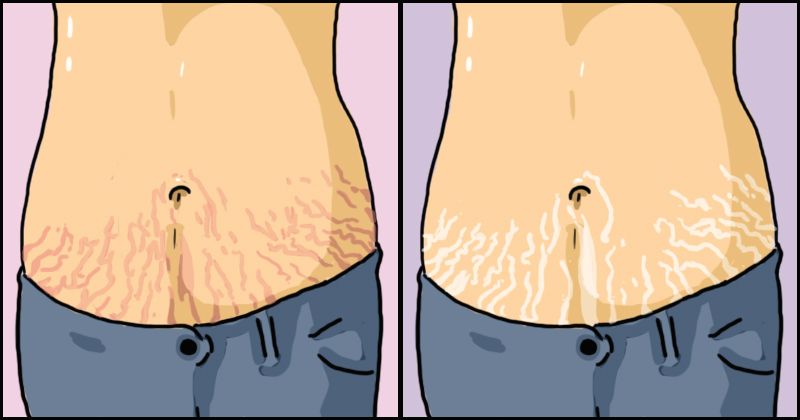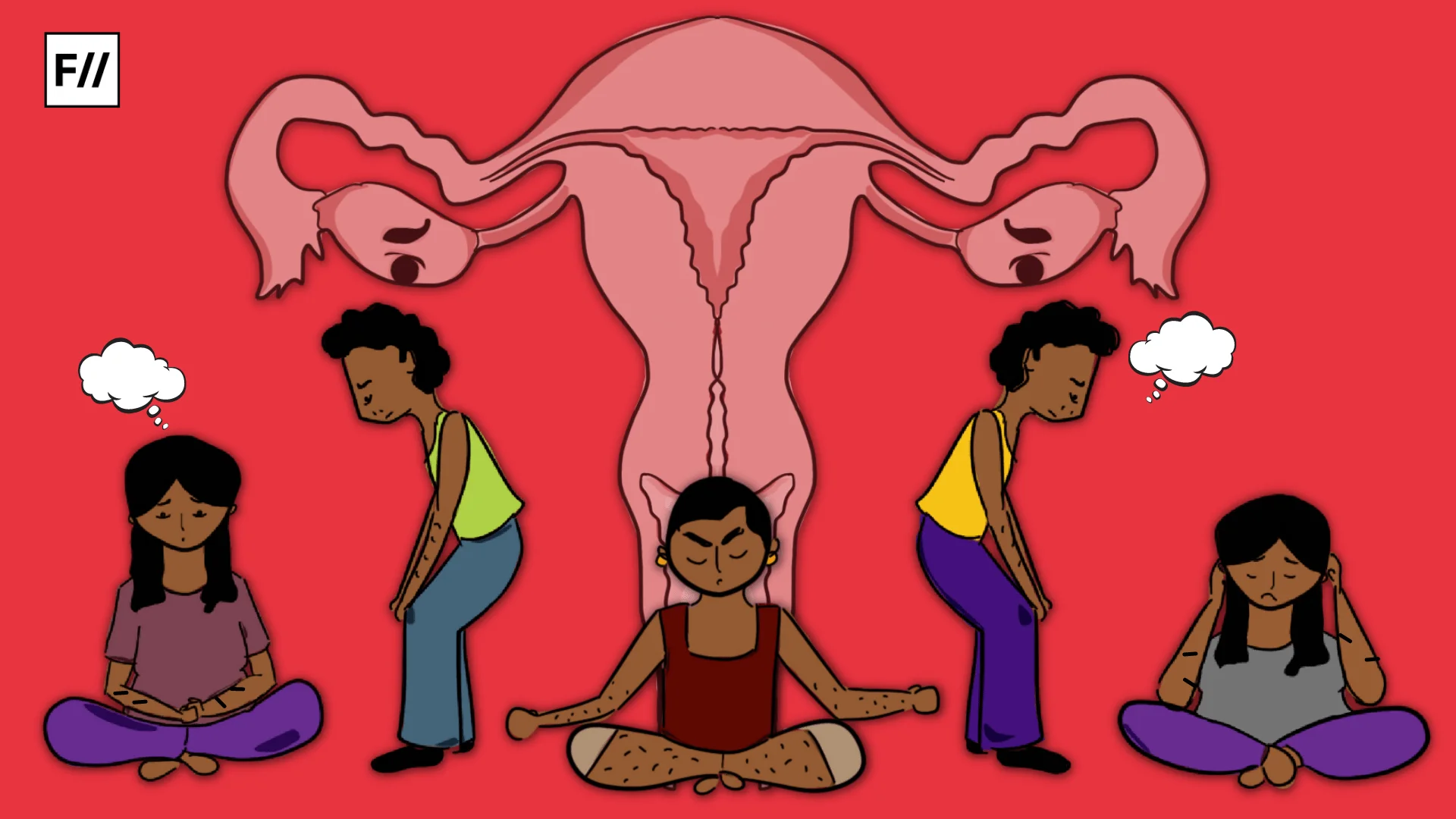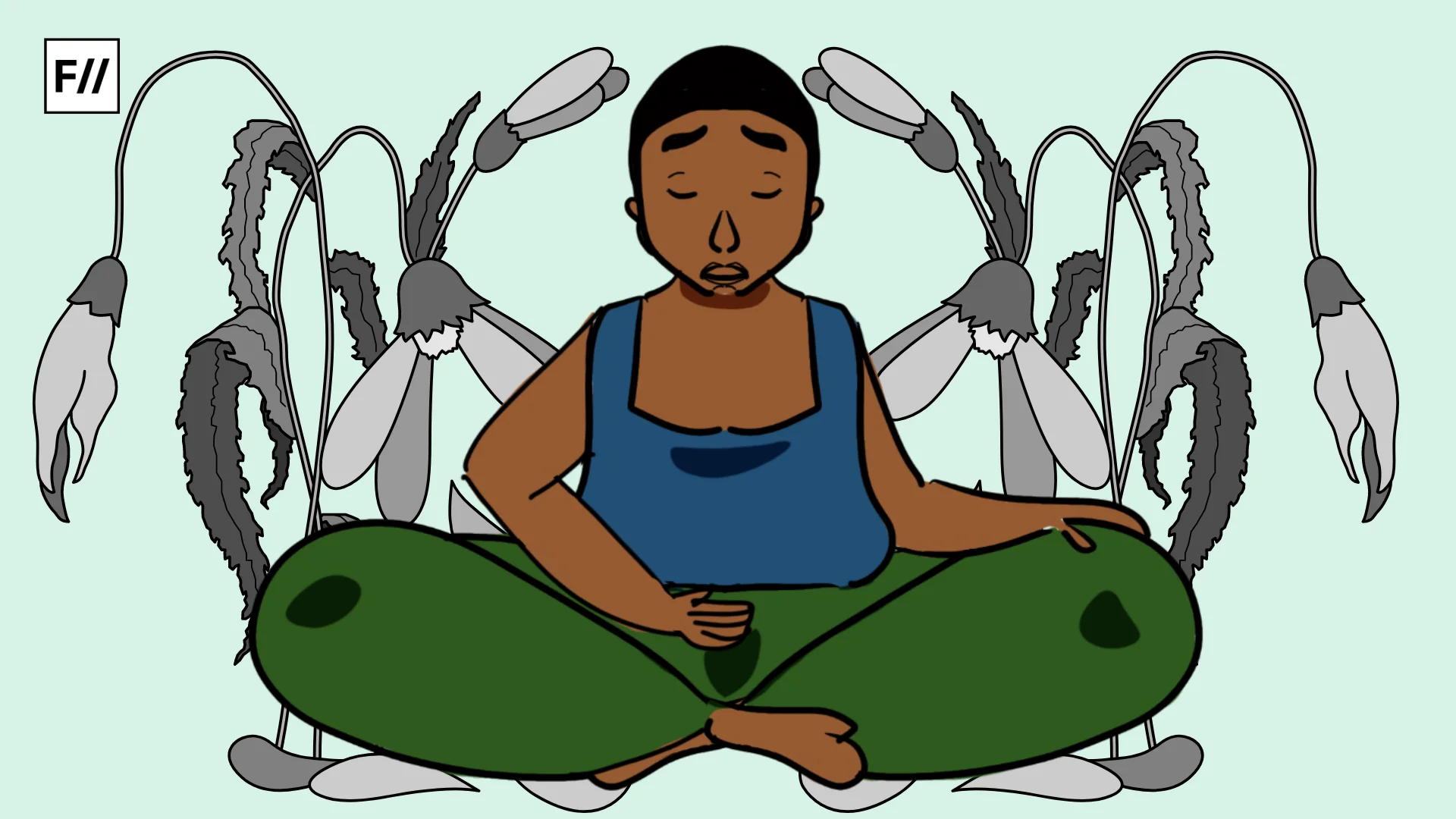I remember when my sister first noticed my stretch marks—I was a teenager and my sister, being nine years elder to me, scolded me for not doing anything about it—applying a special oil or cream. How did I ever expect to wear a short blouse with stretch marks on my stomach? At that time, unlike now, there weren’t many bio-oil ads on TV and I didn’t even know what the marks on my body were or that I was supposed to do anything about them. While people were quick to point out that stretch marks look ugly, or to ask how did I get them at such a young age in the first place, they never told me that stretch marks can be a symptom of Polycystic ovary syndrome/PCOS (I emphasize on the can, they do not necessarily imply PCOS).
This is because they themselves did not know. Most people around me did not even know what PCOS is or that irregular or prolonged periods can be a matter of concern. This is because awareness about women’s health, especially sexual and reproductive health is low in a patriarchal society.
My mother told me that irregular periods are ‘okay and normal’ for a very long time until, thankfully my school psychologist recommended me to go to the doctor. Irregular periods can be normal too, but the best way to find out about your case is to go to a gynaecologist. The Polycystic Ovary Syndrome is a hormonal disorder, symptoms vary but may include irregular periods, excess of a hormone called androgen and polycystic ovaries (ovaries might be enlarged and contain follicles that surround the eggs). There is a risk of long-term complications such as type 2 diabetes and heart disease.
The Polycystic Ovary Syndrome is a hormonal disorder, symptoms vary but may include irregular periods, excess of a hormone called androgen and polycystic ovaries (ovaries might be enlarged and contain follicles that surround the eggs).
PCOS is not curable, just like diabetes. I have made changes to my lifestyle, started exercising and eating healthy along with ayurvedic medication. It was not easy, it takes a lot of discipline, especially when surrounded by friends who constantly told me that I don’t need to diet or that we get only one life to eat. It was especially difficult when I was upset or alone and sought comfort foods. The anxiety, mood swings and excess pain during menstruation that accompany PCOS doesn’t make it any easier. Normal things like exams, college admissions or squabbles with family members became a lot more difficult for me because of what I now recognize as the anxiety and tension caused by the hormonal imbalance of PCOS.
Also read: Watch: Why Understanding Polycystic Ovarian Syndrome Is Important
The internet is a boon, but is dominated by western home remedies that are either unavailable or expensive in India. It was also a struggle to find doctors who are supportive and take PCOS seriously—doctors can also be victims to the lack of awareness that exists. My aunt who is a gynaecologist was very dismissive of my issue, totally ignoring my symptoms as ‘normal’. I distinctly remember one of the doctors questioning me, “Why is your neck of a darker shade than the rest of your body, why do you have so many stretch marks?” He was trying to point out symptoms but his tone seemed accusatory and it somehow made me feel like I have done something wrong. While prescribing weight loss as a treatment, the doctors also held me responsible for my weight gain. When I tell doctors that I have a lot of pain during my periods, they seem to not hear it. For myself, and so many other women, the pain is extremely horrible.
I DISTINCTLY REMEMBER ONE OF THE DOCTORS QUESTIONING ME, “WHY IS YOUR NECK OF A DARKER SHADE THAN THE REST OF YOUR BODY, WHY DO YOU HAVE SO MANY STRETCH MARKS?” HE WAS TRYING TO POINT OUT SYMPTOMS BUT HIS TONE SEEMED ACCUSATORY AND IT SOMEHOW MADE ME FEEL LIKE I HAVE DONE SOMETHING WRONG.
1 in 5 women in India are affected by PCOS (2015 Study by Metropolis Healthcare). When I talk about PCOS, women often tell me its so common, tell me about others they know who have PCOS, which is a nice way of saying “Hey! That’s not a real problem if so many people have it.” But that’s not true, more than half the women in India are anaemic too, these are common but serious health issues that women are facing. These statistics point to the sad state of women’s health in our country. It is widespread because of a lack of concern and awareness about women’s health and nutrition. The taboo that surrounds menstruation only hampers awareness. Moreover, today the market sells an array of food products with high salt and sugar that lead to hormonal imbalance which has led to these statistics.
Also read: PCOS And Women: What We Need To Know
Also, the socialisation of girls (in middle class and upper class families specifically) to be good at studies, play with dolls, etc. instead of playing sports leads to a lack of physical activity which aggravates the issue further. A lot of people in my family did encourage me to start playing sports but that was only after I started gaining weight. They also seemed a lot more concerned about how I looked rather than my health. Of course, I was told that I will have difficulty ‘finding a husband’ or that I should lose weight if I want to date, by those who deeply cared about me. But I did not and do not find the numerous concerned voices around me to be of any real motivation or guidance.
If you have PCOS, I will say, you get one life and one body, do all you can for your health. Having a healthy lifestyle is difficult, and trying to find a good doctor is difficult too. Most importantly, talk to other people, you will be surprised to find many women having similar issues and happy to guide you. I feel talking to men is important too, to create more awareness about PCOS and for me, it has been important that all people I am close to know what I am going through.
Also read in Hindi: महिलाओं का पीसीओएस की समस्या को अनदेखा करना ख़तरनाक है
Featured Image Source: Women Working
About the author(s)
Khushi Agarwal is an English Literature student from Miranda House and an enthusiastic volunteer for women and child development. Writing is her chosen mode of expression and activism.




